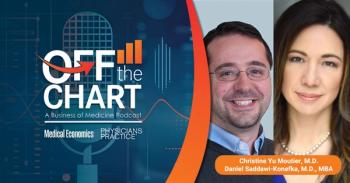
The Value of PAs is Often Hidden
An experienced PA believes the professions quality measures and results are often hidden under the umbrella of the physicians they work beside.
I have practiced medicine as a physician assistant (PA) for a very long time, across six specialties. I know, and physicians with whom I have worked know, that a PA is a productive, competent member of the healthcare team. However, data in support of this is hard to come by.
PAs have been hindered by their relative lack of visibility in the healthcare system. This is partly because of the unique relationship with physicians that PAs have had over the years. All of our productivity and outcomes documentation is hidden in the billing and tracking activity of physicians. While our close association with physicians has been good for the patients, and good for the team, it makes understanding and quantifying the true impact of PAs difficult.
A study was reported in a
Five years of data from the community health centers subset of the National Ambulatory Medical Care Survey was analyzed. This database included nearly 24,000 visits to 1139 practitioners. The samples were taken from the 30 million visits of community health centers in the United States.
The researchers looked at 9 patient-level outcomes:
•3 quality indicators,
•4 service utilization measures,
•2 referral pattern measures.
On nearly all of the outcomes (7), there was no statistically significant differences detected in NP and PA care, as compared to physician care. The key differences reported in the study were as follows
•Patients visiting NPs were more likely to receive recommended smoking cessation counseling compared to primary care physicians.
•Patients visiting PAs were more likely to receive health education and counseling services than visits to primary care physicians.
The authors concluded that NP and PA care, in the community health care setting, was largely comparable to that of primary care physicians.
Before anyone jumps to the conclusion that I or the authors are suggesting that NPs and PAs are a replacement for primary care physicians, understand the limitations focus of this study. First and foremost, at community health centers, while PAs and NPs have a significant level of clinical autonomy, they work in teams with physicians, and many other educators, nurses, and therapists, among other health professionals on a community health center care team.
In a way, this study speaks more to the effectiveness of the multidisciplinary team, than it does to the effectiveness of individual primary care providers. Community health centers are a unique model that is growing in the wake of the Affordable Care Act.
However, the takeaway is that PAs, as well as NPs, function to the physician standard of care in this setting and every setting in the health care system. As a PA, I can tell you that there is no such thing as a "PA standard of care." PAs practice and aspire to the physician level of care in the varied settings in which PAs work and practice.
I work in a hospital-based plastic and reconstructive surgery practice. I am a member of the credentials committee on our medical staff, and we have begun tracking quality measures for all the members of the medical staff. It has been a big problem tracking the quality measures and performance parameters of non-physician providers, due to them being hidden within the system. Electronic health records (EHRs) are beginning to evolve to better track PAs and NPs, but we still have a way to go.
My quality measures are still hidden within the work that my surgeon does. This needs to be addressed at all levels of the healthcare system, to better track the use, and utility of providers like NPs and PAs. We also need to continue to refine and improve the way in which we track and document the care of all providers in the healthcare system, to assist with future health care planning.
Newsletter
Optimize your practice with the Physicians Practice newsletter, offering management pearls, leadership tips, and business strategies tailored for practice administrators and physicians of any specialty.








